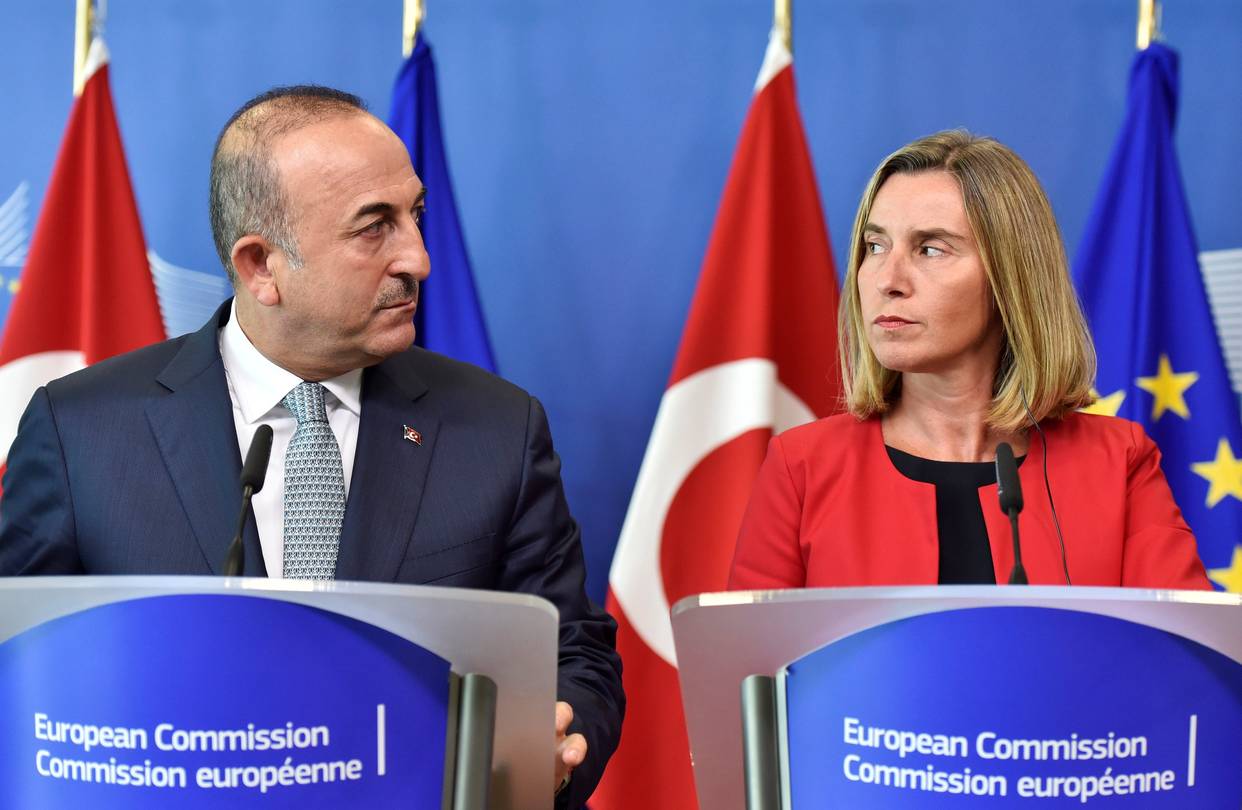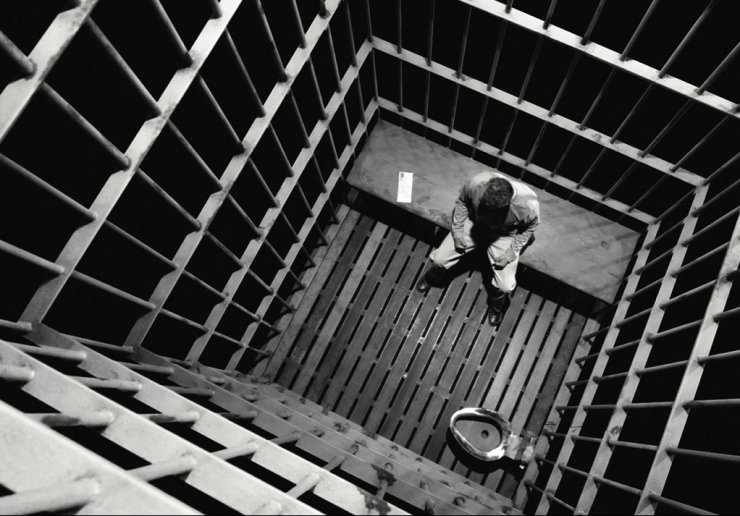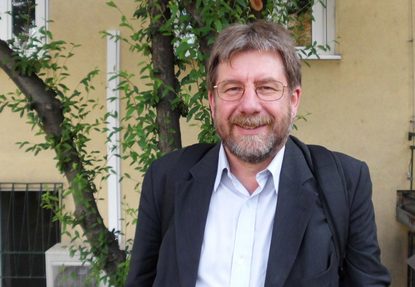A Parliamentary Resolution passed at the beginning of March has urged the Commission and the Council to suspend accession negotiations with Turkey in light of backsliding in the fields of human rights, rule of law and democracy. Since the failed coup d’état in July 2016, the Turkish government issued a state of emergency, under which disproportionate measures were taken in the name of anti-terrorism.
While the European Parliament (EP) welcomes the Turkish government’s July 2018 decision to formally lift the state of emergency, the report asserts that this is ultimately a nonaction as measures in place during the state of the emergency are still being applied.
These measures include excessive power in the executive branch, purges of so-called state opponents, improper judicial procedures and arbitrary restrictions to freedom of expression.
The report condemns the arrests and job dismissals of Turkish citizens and civil servants made without due process and calls on Turkey to release those who are unlawfully detained and to have cases reviewed by an independent judicial court.
It mentions by name the examples of journalist, Can Dundar, human rights activist, Osman Kavala and politician, Selahattin Demirtaş, all of whom have been improperly targeted by the Turkish government for crimes against the state.
The report delves into key areas of concern including curtailment of the freedom of press and of wider civil society, lack of democracy, religious discrimination, violations of the rights of minorities and Turkey’s role in the Syrian Civil War. Each of these areas constitutes a breach of European Union core values and therefore the Copenhagen Criteria, making Turkey currently ineligible to join the EU. This leads the Committee to the radical conclusion that accession negotiations ought to be formally suspended, and the relationship between Turkey and the EU redefined.
In pursuance of alleged anti-terrorism, since the introduction of the state of emergency, 150,000 Turkish people have been taken into custody, 78,000 have been arrested and 50,000 remain in jail, most cases of which have no conclusive evidence. The Turkish government has also resorted to surveilling, harassing and even kidnapping Turkish citizens residing in third countries who are deemed opponents of the state. Those who have been detained claim to have experienced harsh conditions, excessively long stints in solitary confinement and other forms of torture.
While the report urges Turkey to use the proportionality principle in its anti-terrorism measures, it also calls on EU member states to carefully process extradition requests filed by Turkey and to increase protection and support for journalists and human rights defenders who are at risk.
In addition to those arrested and detained, 152,000 civil servants, including teachers, doctors and academics, have been dismissed from their posts. The Commission on the State of Emergency Measures which reviews complaints about measures taken under the state of emergency has received 125,000 applications, of which 81,000 are still awaiting a decision.
Of those cases reviewed, only 7% have had a favourable outcome. Judges and prosecutors have been under increased pressure and surveillance and over 570 lawyers have been arrested. These actions constitute a severe threat to judicial impartiality and the right to a fair trial. The report calls for serious judicial reform in collaboration with the Reform Action Group and monitoring from the European Commission.
The report claims that Turkey has taken disproportionate and arbitrary measures limiting freedom of expression and access to information. 160 media outlets have been closed and 114,000 websites have been blocked.
Moreover, in wider civil society, even after the lifting of the state of emergency, demonstrations and marches have been banned. Turkey is urged to release and acquit the activists, human rights defenders, journalists and other media workers who have been unlawfully arrested and detained.
The EP’s Committee on Foreign Affairs is also concerned with the infringement on democracy and pluralism in Turkey both during and after the state of emergency.
The scrutinising role of the Grand National Assembly, the Turkish parliament which ought to be the central institution representing all citizens, has been constrained and the voices of opposition parties and trade unions have been marginalised and even outlawed.
In some regions of Turkey, particularly the south-east, locally-elected mayors have been stripped of their posts and replaced with government-appointed trustees.
The report insists that Turkey undergoes significant constitutional and judicial reform in cooperation with the Venice Commission, the Council of Europe’s commission for Democracy through Law.
The report condemns Turkey’s lack of respect for religious freedom, asserting that churches continue to face problems over establishment and continuation. Turkey must implement reforms that promote freedom of thought, conscience and religion such as allowing religious communities to establish legal personalities and eliminating discrimination based on religion.
The Committee references the case of the Aramean churches that were confiscated by the Turkish government in 2017 and emphasises the importance of protecting cultural heritage and diversity. Similarly, the report addresses concerns for the violations of the human rights of minorities such as LGBTI and Roma people.
Hate speech regulation must be brought up to the standards of the European Court of Human Rights and strategies for inclusion and integration of minorities must be implemented. The report also highlights the situation in south-east Turkey where there has been a failure to peacefully resolve the conflict with the Kurdish Worker’s Party. Here, there have been further alleged human rights abuses, excessive use of force and torture and the destruction of historical heritage sites on the part of the Turkish government.
One positive note amongst the punitive condemnations is the “great hospitality” Turkey has shown to Syrian refugees following the outbreak of the war; the Committee notes, for example, that 60% of child refugees are enrolled in Turkish schools. However, there are concerns around the Turkey-backed groups in the Free Syrian Army that are said to have seized, looted and destroyed property of Kurdish people. The report urges Turkey to compensate those affected and to drop charges against those who have criticised Turkey’s military action in Syria.
The report concludes with recommendations about the future relationship between the EU and Turkey.
While the prospect of accession was supposed to act as a motivation for positive reform in Turkey, as outlined, since 2016, the state of human and fundamental rights, pluralistic democracy and freedom of expression has regressed.
The Commission and the Council are thus advised to formally suspend accession talks with Turkey in accordance with the Negotiation Framework. The EU ought to remain open to democratic and political dialogue with Turkey and the funds allocated under the Instrument for Pre-Accession Assistance (IPA) ought to be used to support Turkish civil society, human rights defenders, students and media outlets.
Moreover, the Committee states that a “door should be left open” for modernising the Customs Union with Turkey, noting that Turkey is the EU’s fifth largest trading partner and that the EU is Turkey’s largest.
Cooperation in the areas of customs, trade and the economy may lead to dialogue in other areas such as sustainable development and labour rights which would go some way to support fair, open and pluralistic systems in Turkey.



